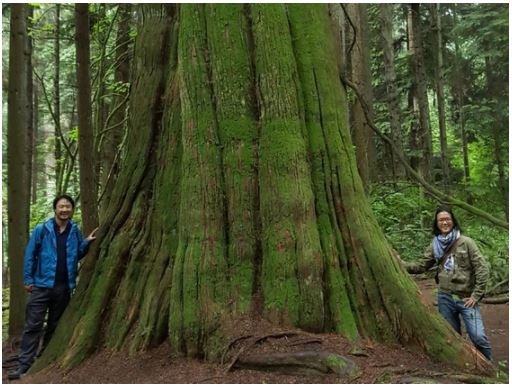by the Canadian Press Staff
Vancouver Sun, March 25th, 2022
Mosaic Forest Management, which oversees the private lands of logging companies TimberWest and Island Timberlands, announced the deferral last week along with intentions to finance the plan through a carbon credit program that is expected to raise several hundred million dollars by 2047.
An environmental organization is offering cautious support for an announcement by the largest private landowner in British Columbia that will defer logging in 400 square kilometres of old-growth forest for the next 25 years.
Mosaic Forest Management, which oversees the private lands of logging companies TimberWest and Island Timberlands, announced the deferral last week along with intentions to finance the plan through a carbon credit program that is expected to raise several hundred million dollars by 2047.
A statement from the Endangered Ecosystems Alliance says exempting old-growth and older second-growth stands from logging will protect the unique trees that support everything from the climate and endangered species to wild salmon, clean water and tourism.
Ken Wu, executive director of the alliance, says long-term deferrals will buy time to arrange further protection and Mosaic should be commended for its “important step” if the measure “pans out.”
But Wu cautions that private carbon offset agreements between companies are not a conservation substitute for Indigenous protected areas or other publicly protected lands, such as provincial conservancies, parks and ecological reserves.
Mosaic says stands slated for protection cover an area three times the size of Vancouver and are located on parts of Vancouver Island and on Haida Gwaii.
Mosaic has said a portion of the proceeds it raises will go to the Pacific Salmon Foundation and the Indigenous Protected and Conserved Areas Innovation Program to support scientific and First Nations cultural research on and around the project lands.
The company says it expects to capture and store more than 10 million tonnes of carbon dioxide through its plan as well as conserving some of B.C.’s oldest trees, ecosystems and wildlife habitats.
The alliance says B.C. is moving toward an overhaul of old-growth forest management and is working with First Nations to identify millions of hectares of at-risk old-growth forest, but it wants to see more action.
“The B.C. government has not provided any dedicated funds for private land acquisition, which is needed to buy old-growth forests for new protected areas on private lands such as these Mosaic lands,” its statement says.
Photo: Ken Wu, Executive Director of the Endangered Ecosystems Alliance, and Kevin Huang of the Hua Foundation by an old-growth red cedar tree in Stanley Park, where the groups were working to organize tours in Mandarin and Cantonese to raise awareness about the ecology and conservation needs of old-growth forests.
